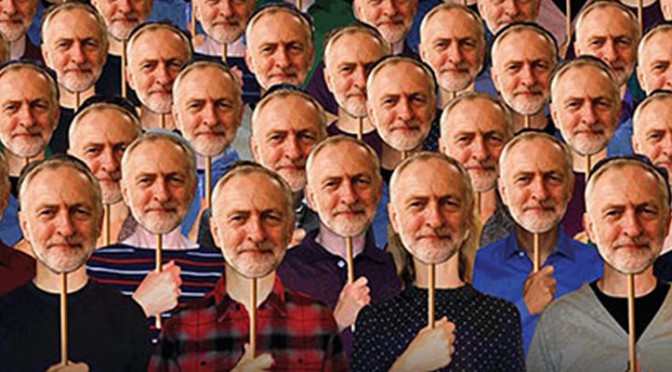CUAL ES EL ETF DE BITCOINBLACKROCK BITCOIN AD6 TRILLION DOLLARS BITCOIN
It has not been a good few weeks for Sir Keir Starmer. On April 19 he was unceremoniously booted out of a pub in Bath, with the landlord reportedly saying that Starmer “has completely failed as the leader of the opposition.” He has “completely failed to ask the questions that needed asking …”1
This very public PR disaster, straight out of the classic political comedy, The thick of it, could not have come at a worse time for the Labour leader, as the party faces a series of important elections on May 6. But Starmer’s altercation with an irate publican is not his only problem. As he was marking the first anniversary of his election as Labour leader, rumours and press speculation suggested that senior figures in the Parliamentary Labour Party were dissatisfied with his performance as leader of the opposition and that moves were afoot to oust him. Various names were put forward as possible replacements, including Angela Rayner, Lisa Nandy, Jess Phillips, Rachel Reeves, Yvette Cooper and Andy Burnham.2 Although there were the usual public declarations of support and disavowals of any leadership ambitions, it is clear from these well-placed stories that ‘leading figures’ are involved in manoeuvres and jockeying for position in any future contest.
This discontent at the top of the party is not coming from what passes for the left in the PLP – the Socialist Campaign Group of MPs has long been cowed into acquiescent silence. Rather the unease about Starmer’s leadership, and Labour’s electoral prospects, comes from the Labour right, who see their own careers and opportunities for personal advancement stalled by yet more ‘wasted’ years in opposition. So these rumblings of discontent are not about matters of principle or political direction: leaving aside the obvious differences in personal style and image, there are no fundamental disagreements between Starmer and his potential rivals in the PLP. The ‘responsible opposition’ and ‘quiet radicalism’ that are the hallmarks of his strategy are still widely supported by Labour MPs.3
The main problem for the Labour right is the opinion polls and what they tell us about the party’s electoral chances next month. Thursday May 6 will be the first major electoral test since the general election of December 2019, with elections being held for local councils in England, local and combined authority mayors, the mayor of London and London assembly members, police and crime commissioners in England and Wales, the Senedd Cymru/Welsh parliament and the Scottish parliament – not to mention the Hartlepool parliamentary by-election.
The latest opinion polls give the Tories a nine-point lead over Labour (43%-34%) – a gap which has been opening up over the last three months as the Johnson government’s ‘vaccine bounce’ has become clearly apparent in the figures.4 Similarly, Boris Johnson’s personal approval ratings have grown over the same period (54% approval, 46% disapproval), whilst Starmer’s have ‘tanked’ into negative territory (33% approval, 42% disapproval) after a strong showing last year following his election as Labour leader.5
For a new leadership that plays up Starmer’s quiet competence in contrast to Johnson’s showy boosterism and Corbyn’s extremism, these figures are worrying. For all the promises ‘to bring Labour home’ and regain its lost ‘traditional’ supporters, Starmer’s appeal to the mythical ‘centre ground’ so beloved of bourgeois politics has appeared, for the moment at least, to have largely fallen on stony ground.6
This strategy, targeted at so-called ‘Red Wall’ voters who went over to the Tories in December 2019, will be put directly to the test in the Hartlepool by-election on May 6. This North East constituency has almost the classic ‘Red Wall’ profile of a ‘left-behind town’ which voted heavily for Brexit and where Labour’s electoral base has been declining steadily over the last 30 years.7 In line with the national picture, the latest opinion polls give the Tories a seven-point lead in the constituency – a result that, if translated into votes on polling day, would be a disaster for the Labour leadership.8 Although opinion polls are only a snapshot, not an infallible guide, and given that the wide variety of electoral contests, from devolved parliaments down to district councils, will inevitably produce different local variations on May 6, it is still likely that the results will be disappointing for Labour.9
Embodiment
How will the Labour leadership react to a poor performance? More importantly, given the media speculation and the well-placed stories about unease on the back benches, will Starmer face a leadership challenge if there is an electoral setback next month? What are the options open to them?
A leadership challenge is not really on the cards and, should anyone from the Labour right attempt it, it would be a career-wrecking folly on their part. From the point of view of further ascending the greasy pole, far better to wait, especially if Johnson maintains his opinion poll lead and calls an early election in autumn 2022 or spring 2023, when the Tories can still benefit from ‘the vaccine bounce’ and before the post-Covid economy moves back into recession.10 So any manoeuvres currently being undertaken by the aspiring careerists of the Labour right are directed at the medium term rather than immediate gain – a jockeying for position, following what is expected to be another general election defeat for Labour, whenever it comes.
For the Labour right – the overwhelming majority of the PLP – these careerist calculations are inextricably linked to their wider political function in bourgeois politics. Labour’s historical role as a bourgeois workers’ party has been to maintain the capitalist status quo by containing and diverting working class struggle into safe, constitutional channels, The Labour leadership, the PLP and the trade union bureaucracy act, in Daniel de Leon’s memorable phrase, as labour lieutenants of capital within the workers’ movement, and police its politics to create a reliable ‘second eleven’ for capitalism.
In this process, maintaining tight control over the politics and the organisations of the Labour movement is vital – which is why the Corbyn movement and the potential challenge it might have posed to politics as usual was such a fright for both the ruling class and the Labour right. A strong, determined Labour left, committed to democratising the party and clearing out the openly pro-capitalist politicians from its ranks, would have meant the end of the careers of the Labour right and the loss of Labour as a pliable instrument for maintaining capitalist constitutionalism. That, of course, did not happen, but the memory of that potential remains as a warning to both the capitalist class and the Labour right to never again relax their grip over the party.
Starmer is perhaps the personification of the determination to heed that warning, with his numerous political and personal connections with the state and the legal system: his whole career to date has bound him hand and foot to the ruling class and the higher echelons of the state establishment more openly than any previous Labour leader.11 As far as capitalism is concerned, he is the safe pair of hands par excellence.
At the moment the same goes for the Labour right: although he has not turned out to be the Wunderkind they hoped would revive Labour’s electoral fortunes and reset their parliamentary careers back on the right track, Starmer is the best that they can hope for at present. He has proven effective in corralling what remains of the official left in the PLP and maintaining the right’s control of the party machine. He has kept up the attack on the left in the Constituency Labour Parties and continued with the smears and slanders against socialists and anti-Zionists. On that score there is little for either the Labour right or the ruling class to complain about – job done!
However, the problem that Keir Starmer and the Labour right now face is much more fundamental than the swings and roundabouts of opinion polls and normal electoral cycles. It is that Starmer and his ilk offer nothing to working class voters, other than pious platitudes and a ‘programme’ that is a pale imitation of that of the Johnson government.12 He does not even pretend that he can offer us even the most limited social democratic reformism.
So, despite all the talk of ‘new leadership’ and rejecting ‘business as usual’, Starmer has revealed that he truly is a hollow man for hollow times, and that the bankruptcy of the Labour right and its pro-capitalist politics really has found its perfect embodiment in the shape of the Right Honourable Sir Keir Starmer, PC, QC.13
Meanwhile, albeit with a heavy heart: vote Labour on May 6, but redouble efforts to build a viable revolutionary alternative to all the rotten manifestations of Labourism.
- morningstaronline.co.uk/article/b/sir-keir-gets-boot-pub.↩︎
- thetimes.co.uk/article/a-year-on-keir-starmer-is-feeling-the-strain-s5scj8mnm.↩︎
- spectator.co.uk/article/the-trouble-with-starmer-s-quiet-radicalism.↩︎
- politico.eu/europe-poll-of-polls/united-kingdom.↩︎
- theguardian.com/politics/2021/apr/02/one-year-labour-leader-keir-starmer-popularity-plunge.↩︎
- theguardian.com/politics/2021/apr/02/amid-unease-on-the-left-starmer-aims-to-bring-labour-home.↩︎
- theguardian.com/politics/2021/apr/02/past-and-present-labour-mps-square-off-in-hartlepool.↩︎
- electionpolling.co.uk/by-elections/2021/05/06/hartlepool; theguardian.com/commentisfree/2021/apr/07/hartlepool-labour-working-class-voters-may-byelection-left.↩︎
- It is clear that this wide range of quite different electoral campaigns will throw up quite different results on May 6. For example, in Scotland, and to a much lesser extent in Wales, questions of independence and the nature of devolution will be important, whilst in England the local elections can be taken as a verdict on the Johnson government’s performance. Alongside this, many contests will also have a specifically local flavour. Thus, the Liverpool mayoral contest will give voters a chance to express their opinions on Labour’s record in governing the city and the crisis following mayor Joe Anderson’s arrest. For events in Liverpool see ‘Careerism on the Mersey’ Weekly Worker March 11.↩︎
- theguardian.com/commentisfree/2021/jan/11/could-boris-johnson-be-eyeing-another-snap-election-dont-bet-against-it.↩︎
- tortoisemedia.com/2021/03/23/234053.↩︎
- independent.co.uk/voices/keir-starmer-speech-labour-boris-johnson-b1804086.html.↩︎
- See ‘Hollow man for hollow times’ Weekly Worker February 25.↩︎






